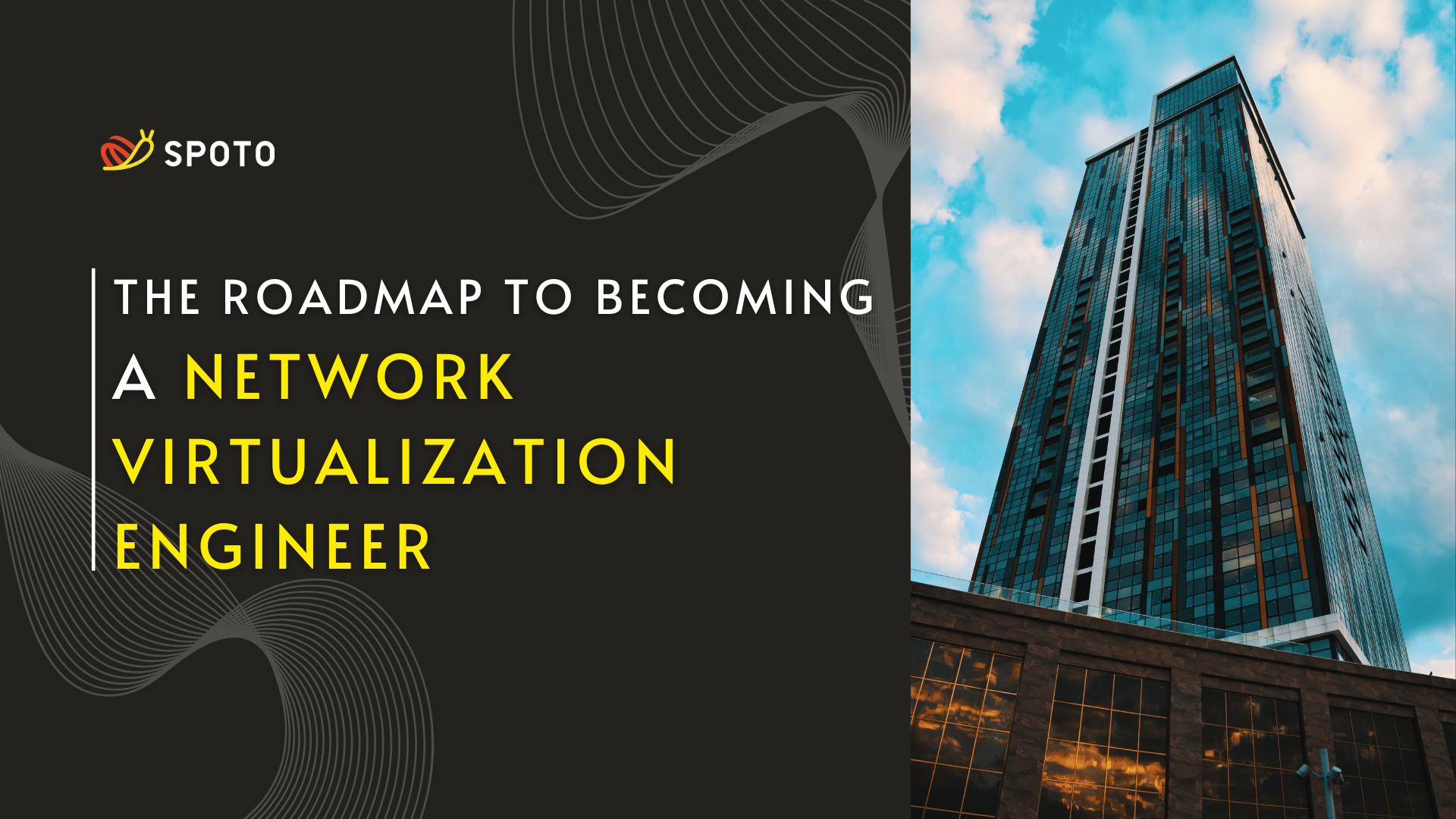TRUSTED BY THE SMARTEST TEAMS IN THE WORLD FOR CERTIFIED CANDIDATES
SPOTO Blogs
Useful learning materials to become certified IT personnel
-
- 527
- Emma
- 2025-05-21 12:19
-
- 182
- SPOTO
- 2025-05-21 11:38
-
- 587
- Emma
- 2025-05-21 11:33
-
- 479
- SPOTO
- 2025-05-21 11:18
-
- 846
- spoto
- 2025-05-21 10:42
-
- 547
- Emma
- 2025-05-20 12:51
-
- 428
- Emma
- 2025-05-20 11:42
-
- 630
- Emma
- 2025-05-19 12:28
-
- 505
- Emma
- 2025-05-19 11:23
TRUSTED BY THE SMARTEST TEAMS IN THE WORLD FOR CERTIFIED CANDIDATES
SPOTO Blogs
Useful learning materials to become certified IT personnel
-
- 527
- Emma
- 2025-05-21 12:19
Table of Contents1. An Overview of IT Service Manager2. The Details3. Why become an IT Service Manager?4. How to start a career as an IT Service Manager?5. Conclusion In today's digital-driven world, businesses rely heavily on IT infrastructure to stay competitive, agile, and innovative. The role of an IT Service Manager (ITSM) has become pivotal, serving as the bridge between technological prowess and strategic business objectives. Whether you're considering this career path or seeking to understand its significance, this guide provides a fresh perspective on why IT Service Managers are in high demand—and how you can launch a successful career in this exciting field. 1. An Overview of IT Service Manager An IT Service Manager is a professional responsible for overseeing all elements of an organization's IT services. Think of them as the conductors of a complex orchestra—ensuring all IT components, from hardware to cloud applications, work harmoniously to deliver exceptional value to the business. They focus not only on maintaining existing IT systems but also on continuous improvement, aligning IT strategies with business goals, and ensuring service quality. In essence, IT Service Managers don't just manage technology—they manage the service that technology provides, making sure it meets the needs of users and stakeholders efficiently and reliably. 2. The Details Roles and Responsibilities of IT Service Manager The role of an ITSM is multifaceted, blending technical knowledge with strong leadership and communication skills. Some core responsibilities include Service Strategy & Design: Developing IT service strategies aligned with business goals and designing service models that are scalable and resilient. Incident & Problem Management: Quickly resolving IT issues, minimizing downtime, and investigating root causes to prevent future incidents. Change Management: Overseeing updates and upgrades to IT systems in a controlled manner, minimizing risk. Service Level Management: Ensuring IT services meet agreed-upon standards through regular monitoring and reporting. Continuous Improvement: Regularly analyzing service performance and seeking avenues for enhancement. Related Jobs: IT Operations Manager IT Business Partner Service Delivery Manager 3. Why become an IT Service Manager? Salary and Job Outlook The demand for skilled IT Service Managers is soaring—driven by digital transformation across industries, cloud adoption, and the need for robust cybersecurity. Salaries vary by geography, experience, and industry. For example, in the U.S., an IT Service Manager can earn between $80,000 and over $130,000 annually, with higher figures in top-tier firms or niche markets. Career Growth and Job Stability ITSM is a cornerstone of organizational resilience. As companies increasingly value digital agility, the role offers excellent career stability and upward mobility. Many IT Service Managers transition into executive roles such as Chief Information Officer (CIO) or Chief Technology Officer (CTO), broadening their leadership impact. 4. How to start a career as an IT Service Manager? Launching into IT Service Management requires a blend of technical skills, industry certifications, and managerial aptitude. Build a strong IT foundation Courses in network management, ITIL (Information Technology Infrastructure Library), and project management are crucial. These courses provide in-depth knowledge. Network management courses teach you to maintain and optimize network performance. ITIL courses offer frameworks for efficient IT service delivery, while project management ones help in organizing and executing IT projects smoothly. Gain practical experience Hands-on roles in IT support, network administration, or system analysis lay the groundwork. Working directly in these areas allows you to apply theoretical knowledge. You'll encounter real-world IT problems, learn how to troubleshoot them, and understand the day-to-day operations, which are invaluable for career growth. Pursue certifications ITIL v4 Foundation or PMP can boost credibility. Certifications like these are recognized globally. They prove your expertise and dedication to professional development. Employers often prefer candidates with certifications, as they indicate a certain standard of knowledge and skills. Develop soft skills Communication, problem-solving, and leadership are essential to manage teams and stakeholder expectations. Good communication ensures smooth information flow. Strong problem-solving skills help resolve complex IT issues, and leadership abilities are vital for guiding teams towards achieving common goals in an IT environment. Stay updated Continuous learning about emerging trends such as cloud services, automation, and cybersecurity enhances your value. The IT field evolves rapidly. Keeping up with new trends enables you to offer innovative solutions, stay competitive in the job market, and adapt to changing business requirements. Starting small and climbing the ladder with relevant experience and certifications can set you on a path toward becoming a proficient ITSM. 5. Conclusion The role of an IT Service Manager is not only vital but also rewarding—combining technology expertise with strategic leadership to drive organizational success. As businesses continue their digital evolution, skilled ITSM professionals are more essential than ever, offering stability, growth, and the chance to make a tangible difference. Embark on this pathway, equip yourself with the right skills and certifications, and you'll find yourself at the forefront of innovation and service excellence. Remember: Your journey as an IT Service Manager begins with a strong foundation—so take the first step today! -
- 182
- SPOTO
- 2025-05-21 11:38
Table of Contents1. Industry Recognition and Credibility2. Access to Lucrative Job Opportunities3. Improved Earning Potential4. Real-World Skill Development5. Structured Career Path for Cybersecurity Roles6. Global Community and Employer Trust7. Continuing Education and Career Flexibility As cybersecurity continues to dominate headlines and budgets in today’s IT landscape, the demand for vendor-specific security expertise has soared. Among the leaders in this space, Fortinet certifications—particularly the Network Security Expert (NSE) track—have gained widespread attention. But the real question many IT professionals ask is: Is Fortinet certification worth it? 1. Industry Recognition and Credibility Fortinet is one of the top cybersecurity vendors globally, and their NSE certification track is well-regarded in enterprise and service provider environments alike. The certifications—ranging from NSE 1 to NSE 8, and now transitioning into roles like FCP, FCSS, and FCX—cover everything from foundational knowledge to expert-level network security architecture and operations. Why this matters: A Fortinet certification signals to employers that you have hands-on, validated experience with Fortinet technologies—specifically FortiGate, FortiManager, FortiAnalyzer, and others commonly deployed across secure networks. 2. Access to Lucrative Job Opportunities Being Fortinet certified opens doors to numerous cybersecurity job roles. For example, with an NSE 4 certification (or equivalent FCP-level), you qualify for roles like: Network Security Administrator Firewall Engineer Cybersecurity Analyst Security Operations Center (SOC) Analyst Network Security Engineer Employers in industries like finance, government, healthcare, and telecom often prioritize candidates with vendor-specific certifications—especially when Fortinet gear is already deployed. 3. Improved Earning Potential Certified professionals tend to earn higher salaries. Fortinet-certified engineers and architects command competitive compensation, especially when paired with real-world experience and other certifications (like Cisco, Palo Alto, or AWS). Entry-level roles with NSE 1–3 may not lead to direct salary increases but provide a stepping stone into cybersecurity. Mid-level roles with NSE 4–6 (FCP-level) can earn between $80,000–$120,000/year depending on region and experience. Senior-level experts (FCSS/NSE 7 or FCX/NSE 8) often exceed $150,000/year, especially in consulting or security architecture roles. 4. Real-World Skill Development Fortinet’s certifications are not just theory-based—they are heavily lab- and performance-oriented, especially at the higher levels. This ensures that certified professionals: Understand how to deploy, configure, and troubleshoot Fortinet solutions. Can implement NGFW, IPS, VPN, SD-WAN, and Zero Trust strategies using FortiGate devices. Are equipped to handle both traditional networks and modern cloud/hybrid environments. Hands-on training = immediate value in the workplace. 5. Structured Career Path for Cybersecurity Roles The Fortinet Training Institute offers a well-defined progression for professionals at all stages: Level Focus Area Beginner Cybersecurity awareness and product overview Intermediate FortiGate administration and product specialties Advanced Expert-level security solution integration Expert Security architecture and advanced troubleshooting This structure helps professionals map out a long-term development plan and build a specialization that aligns with their career goals—be it cloud security, SD-WAN, OT security, or SOC operations. 6. Global Community and Employer Trust Fortinet has trained over 1.5 million professionals through its Training Institute. It partners with universities, military organizations, and enterprise employers to standardize and elevate cybersecurity training. Certification from Fortinet is often seen as a mark of technical readiness and trustworthiness, particularly for service providers and MSSPs (Managed Security Service Providers). 7. Continuing Education and Career Flexibility Fortinet certifications are not static. They are continuously updated to reflect evolving threats, new technologies, and product advancements. This keeps professionals up to date with the latest in network security—from AI-driven threat analytics to secure SD-Branch implementations. Plus, Fortinet skills are transferable. Even if you transition to an environment using other vendors, the knowledge in firewalling, segmentation, VPNs, and security policies still applies. -
- 587
- Emma
- 2025-05-21 11:33
Table of Contents1. An Overview of Database Administrator2. The Details3. Why become a Database Administrator?4. How to start a career as a Database Administrator?5. Conclusion Embarking on a career in database administration is an exciting journey filled with opportunities to manage critical business data and ensure seamless operations. As organizations increasingly rely on data-driven decision-making, the demand for skilled database administrators (DBAs) continues to grow. If you're considering stepping into this dynamic field, this guide will illuminate the path ahead, from understanding the role to starting your career and beyond. 1. An Overview of Database Administrator At its core, a Database Administrator (DBA) acts as the custodial guardian of an organization’s data. They design, implement, maintain, and troubleshoot databases to ensure data is available, secure, and efficiently managed. Think of DBAs as the architects and caretakers of a company’s digital treasure trove—they build the structures, safeguard the contents, and keep everything running smoothly. DBAs work across industries—finance, healthcare, tech, and government—and are vital for business continuity. Their responsibilities aren’t limited to technical maintenance; they also involve planning data growth, optimizing performance, and enforcing security protocols. This role blends technical expertise with strategic vision, making it a rewarding career choice for those who love solving complex problems. 2. The Details Roles and Responsibilities of a Database Administrator A DBA’s role is multifaceted, encompassing a variety of responsibilities: Database Design and Implementation: Structuring databases to support business needs and ensuring they are scalable and reliable. Performance Monitoring and Optimization: Regularly analyzing system performance and tuning queries or configurations to enhance speed and efficiency. Backup and Recovery: Developing robust backup strategies and recovery plans to prevent data loss and ensure business continuity. Security Management: Implementing access controls, encryption, and audit trails to safeguard sensitive information. Patch Management and Upgrades: Keeping database software current with patches and updates to protect against vulnerabilities. Troubleshooting: Diagnosing and resolving database issues swiftly to minimize downtime. Capacity Planning: Monitoring growth trends and planning for future storage and computing needs. Compliance and Documentation: Ensuring data handling complies with industry regulations and maintaining thorough records for audits. Related Jobs: Data Analysts Data Engineers System Architects 3. Why become a Database Administrator? Salary and Job Outlook The tech industry's rapid expansion translates into lucrative opportunities for DBAs. According to industry reports, the median salary for a database administrator is competitive and tends to increase with experience and certification. For instance, in the U.S., salaries often exceed 90,000 annually. Moreover, the demand for DBAs is projected to grow steadily over the next decade. As data continues to be the new oil, organizations are investing heavily in data management, security, and compliance—ensuring that skilled DBAs remain highly sought after. Career Growth and Job Stability As you gain experience and expertise, opportunities for advancement expand. You might move into senior DBA roles, specialize in areas like security or performance tuning, or transition into leadership positions such as Database Manager or Data Infrastructure Director. Additionally, the growing adoption of cloud technologies opens new pathways—certifications in AWS, Azure, or Google Cloud can further enhance your career prospects. In terms of stability, the consistent need for data management ensures that skilled DBAs remain in high demand. Organizations recognize the risks of data breaches, outages, and compliance violations, making experienced professionals essential for safeguarding business operations. This demand provides a sense of job security, even during economic fluctuations, as data remains a core asset for every industry. 4. How to start a career as a Database Administrator? Starting your journey involves a blend of education, hands-on experience, and continuous learning. Build a Strong Foundation: Obtain a relevant degree such as Computer Science, Information Technology, or Data Management. Learn Database Languages: Master SQL—it's the universal language of databases—and familiarize yourself with database management tools. Get Certified: Certifications such as Oracle Database Administration Professional or cloud-based credentials like AWS Certified Database Specialty boost credibility and knowledge. Gain Practical Experience: Engage in internships, entry-level roles, or personal projects. Set up your own databases, experiment with restores, performance tuning, and security configurations. Stay Updated: Follow industry blogs, attend webinars, and participate in professional communities to keep pace with evolving technologies like NoSQL, cloud databases, and automation tools. Develop Soft Skills: Effective communication, problem-solving, and documentation are essential for success in collaborative environments. 5. Conclusion Charting a course toward becoming a database administrator can be incredibly rewarding, offering a blend of technical challenge, strategic impact, and financial stability. As data continues to permeate every facet of business, skilled DBAs will remain indispensable. By building a strong educational foundation, gaining practical experience, and staying committed to lifelong learning, you can navigate the road to a thriving career in database management. Start today—your future as a trusted guardian of vital data awaits! -
- 479
- SPOTO
- 2025-05-21 11:18
Table of ContentsWhy Is Fortinet Offering Free Training?What Training Is Available for Free?Certifications You Can Prepare for FreeHow to Access Free Fortinet TrainingBenefits of Fortinet’s Free Cybersecurity Training In today's digital-first landscape, cybersecurity skills are in high demand—but gaining those skills doesn’t have to break the bank. Fortinet, a global leader in cybersecurity solutions, has made a bold and generous move to make expert training more accessible by offering free cybersecurity courses. This initiative opens the door for IT professionals, students, and anyone interested in cybersecurity to pursue Fortinet certifications without any cost barriers. In this article, we’ll walk you through what’s included, how to access the training, and how it can help you prepare for Fortinet certification exams—for free. Why Is Fortinet Offering Free Training? Fortinet launched its Free Training Initiative to help close the global cybersecurity skills gap. According to industry research, there’s a significant shortage of trained cybersecurity professionals worldwide. To address this, Fortinet has committed to providing widespread access to foundational and advanced cybersecurity training. This initiative aligns with Fortinet’s vision to not only protect networks but also to empower the workforce of tomorrow with critical security knowledge. What Training Is Available for Free? Through the Fortinet Training Institute, Fortinet offers a wide variety of self-paced, on-demand courses that mirror the same content used by professionals within the industry. These courses span from entry-level to advanced, covering: Network Security Fundamentals Secure SD-WAN Cloud Security Zero Trust Access Operational Technology (OT) Security FortiGate Essentials and Configuration Fortinet Product Demos Courses are aligned with Fortinet’s NSE (Network Security Expert) certification program, making them directly relevant to anyone pursuing official Fortinet credentials. Certifications You Can Prepare for Free Although the certification exams themselves typically require a paid voucher, Fortinet offers free training courses that prepare you for the following certification levels: NSE Level Focus Area Training Cost Exam Cost NSE 1 Threat Landscape Free Free NSE 2 The Evolution of Cybersecurity Free Free NSE 3 Fortinet Solutions Overview Free Free NSE 4–8 FortiGate, Advanced Security, and Expert Topics Free (training) Paid (exam voucher) How to Access Free Fortinet Training Getting started is simple and requires no upfront payment. Just follow these steps: Visit the Fortinet Training Institute: Go to training.fortinet.com. Create a Free Account: Sign up with your email and verify your profile. Enroll in Free Courses: Browse the catalog and enroll in any available course labeled “Free”. Complete the Training Modules: Courses are self-paced and include video lectures, labs, and quizzes. Earn Your Badge or Certificate: Upon successful completion, receive a digital badge or printable certificate for NSE 1–3. Continue Toward Higher Certifications: Use free training to prepare for NSE 4–8 exams and decide when you’re ready to invest in exam vouchers. Benefits of Fortinet’s Free Cybersecurity Training ✅ No Cost to Learn: 100% free access to industry-standard training 📈 Career Growth: Gain in-demand skills for network security, SD-WAN, and cloud defense 🌍 Global Recognition: Certifications are recognized by employers worldwide 🧠 Up-to-Date Content: Courses are regularly updated to match evolving threats and technologies 💼 Job-Ready Skills: Learn practical skills that can be applied immediately in the workplace -
- 846
- spoto
- 2025-05-21 10:42
Table of ContentsWhy Plan for Certification Costs Up Front?Fortinet Exam Voucher PricingTable of Exam FeesHow to Buy and Schedule Your ExamsTips to Maximize Your Certification BudgetIs Fortinet Certification Worth the Cost? Embarking on your Fortinet Network Security Expert (NSE) certification journey? One of the first questions on every candidate’s mind is, “How much will this cost?” In this post, we’ll break down Fortinet’s current exam voucher pricing, explain how to purchase and manage your vouchers, offer tips to get the most value from your investment, and—newly added—provide a full table of every exam fee. Why Plan for Certification Costs Up Front? Certifications are an investment—both in time and money. Knowing exactly what you’ll pay: Helps you budget for your professional development Ensures you avoid unexpected fees (e.g., taxes, retake costs) Allows you to take advantage of promotions or bundle discounts Being financially prepared means you can focus on studying, not stressing over extra expenses. Fortinet Exam Voucher Pricing Fortinet simplified its NSE voucher costs into three main tiers: Certification Type How Many Exams? Cost per Voucher Single-Exam (FCSS) 1 USD 400 Two-Exam (FCP / NSE 4–6) 2 USD 200 Expert (FCX Written) 1 USD 400 Expert (FCX Practical Lab) 1 USD 1,600 Table of Exam Fees Here is the full list of every Fortinet exam, its duration, and fee as published by I-Medita. Fortinet Certification Level-Professional Technology Category Exam Name Exam Duration (in Minutes) Exam Cost (in USD $) Fortinet Certified Professional Network Security NSE4_FGT-7.2 Fortinet NSE 4 – FortiOS 7.2 120 200 NSE5_FCT-7.0 Fortinet NSE 5 – FortiClient EMS 7.0 75 200 NSE5_FMG-7.2 Fortinet NSE 5 – FortiManager 7.2 85 200 NSE6_FAZ-7.2 Fortinet NSE 6 – FortiAnalyzer 7.2 Administrator 75 200 NSE6_FAC-6.4 Fortinet NSE 6 – FortiAuthenticator 6.4 75 200 NSE6_FNC-7.2 Fortinet NSE 6 – FortiNAC 7.2 75 200 NSE6_FSW-7.2 Fortinet NSE 6 – FortiSwitch 7.2 85 200 NSE6_FWF-6.4 Fortinet NSE 6 – Secure Wireless LAN 6.4 75 200 FCP_FCT_AD-7.2 FCP—FortiClient EMS 7.2 Administrator 75 200 FCP_FAC_AD-6.5 FCP—FortiAuthenticator 6.5 Administrator 75 200 Security Operations NSE4_FGT-7.2 Fortinet NSE 4 – FortiOS 7.2 120 200 NSE5_EDR-5.0 Fortinet NSE 5 – FortiEDR 5.0 75 200 NSE5_FSM-6.3 Fortinet NSE 5 – FortiSIEM 6.3 75 200 NSE5_FAZ-7.2 Fortinet NSE 5 – FortiAnalyzer 7.2 Analyst 75 200 NSE6_FSR-7.0 Fortinet NSE 6 – FortiSOAR 7.0 Administrator 75 200 NSE6_FSR-7.3 Fortinet NSE 6 – FortiSOAR 7.3 Administrator 75 200 Public Cloud Security NSE4_FGT-7.2 Fortinet NSE 4 – FortiOS 7.2 120 200 NSE6_WCS-7.0 Fortinet NSE 6 – Cloud Security 7.0 for AWS 75 200 NSE6_ZCS-7.0 Fortinet NSE 6 – Cloud Security 7.0 for Azure 75 200 NSE6_FML-7.2 Fortinet NSE 6 – FortiMail 7.2 75 200 NSE6_FWB-6.4 Fortinet NSE 6 – FortiWeb 6.4 75 200 Fortinet Certification Level-Specialist Exam Name Exam Duration (in Minutes) Exam Cost (in USD $) Fortinet Certified Solution Specialist NSE7_ADA-6.3 Fortinet NSE 7 – Advanced Analytics 6.3 75 400 NSE7_EFW-7.0 Fortinet NSE 7 – Enterprise Firewall 7.0 75 200 NSE7_EFW-7.2 Fortinet NSE 7 – Enterprise Firewall 7.2 75 200 NSE7_LED-7.0 Fortinet NSE 7 – LAN Edge 7.0 85 200 NSE7_NST-7.2 Fortinet NSE 7 – Network Security 7.2 Support Engineer 90 200 NSE7_OTS-7.2 Fortinet NSE 7 – OT Security 7.2 75 400 NSE7_PBC-7.2 Fortinet NSE 7 – Public Cloud Security 7.2 85 400 NSE7_SDW-7.2 Fortinet NSE 7 – SD-WAN 7.2 90 200 NSE7_ZTA-7.2 Fortinet NSE 7 – Zero Trust Access 7.2 75 400 FCSS_ADA_AR-6.7 FCSS—Advanced Analytics 6.7 Architect 85 400 FCSS_SASE_AD-23 FCSS—FortiSASE 23 Administrator Jan 2024 Jan 2024 Fortinet Certification Level- Expert Exam Name Exam Duration (in Minutes) Exam Cost (in USD $) Fortinet Certified Expert NSE8_812 Fortinet NSE 8 – Written Exam (NSE8_812) 135 400 How to Buy and Schedule Your Exams Log in (or create) your account on the Fortinet Training Institute portal. Select the NSE level or FCSS/FCX track you wish to pursue. Add the appropriate voucher(s) to your cart. Checkout, enter billing details, and pay. Receive your voucher code by email. Schedule your exam through Pearson VUE or another authorized testing center. Tips to Maximize Your Certification Budget Watch for bundle deals: Occasionally, Fortinet offers discounts when you purchase multiple vouchers at once. Prepare thoroughly: Retakes require new vouchers at full price—invest in quality training to minimize retake risk. Schedule early: Vouchers expire after one year. Lock in your exam date so you don’t lose your investment. Is Fortinet Certification Worth the Cost? Absolutely. NSE certifications: Boost your credibility with cutting-edge, vendor-specific expertise Open doors to higher-paying roles and priority hiring Stay current—Fortinet updates its exams to reflect real-world threats and new product features When weighed against the career growth and salary boost certified professionals enjoy, the exam voucher cost becomes an investment in your future. -
- 547
- Emma
- 2025-05-20 12:51
Table of Contents1. Introduction2. What is a DevOps Engineer?3. How to Become a DevOps Engineer?4. Why become a DevOps Engineer?5. Conclusion 1. Introduction In today's fast-paced tech landscape, delivering software quickly, reliably, and efficiently is paramount. That’s where DevOps comes into play—a revolutionary approach that bridges the gap between development and operations. Whether you're a complete beginner or an aspiring tech pro, this guide will walk you through becoming a DevOps hero, with a special focus on the sought-after AWS DevOps Engineer Professional certification. 2. What is a DevOps Engineer? A DevOps engineer acts as the linchpin in modern software development. They foster collaboration between development (Dev) and operations (Ops) teams, automating processes, managing infrastructure, and ensuring continuous integration and delivery (CI/CD). Unlike traditional roles, DevOps engineers require a multidisciplinary skill set including coding, system administration, automation, and a deep understanding of cloud platforms. Core responsibilities include Building and maintaining CI/CD pipelines Automating deployment processes Managing cloud infrastructure (AWS, Azure) Monitoring systems for reliability and performance Ensuring security and compliance throughout the delivery pipeline In essence, a DevOps engineer helps organizations innovate faster without compromising stability—a crucial trait in the competitive tech arena. 3. How to Become a DevOps Engineer? Build Foundational Skills Start with programming (Python, Java) and scripting to automate tasks. Learn Linux basics for server management. Understand CI/CD pipelines and version control. Familiarize yourself with cloud platforms (AWS, Azure, or Google Cloud) and containerization. Master Core DevOps Tools & Practices Dive into configuration management and infrastructure as code. Study monitoring/observability tools (Prometheus, Grafana) and logging systems (ELK Stack). Embrace Agile methodologies for collaborative development. Gain Hands-On Experience Build a personal project (e.g., deploy a web app with CI/CD). Use free cloud tiers (AWS Free Tier) to practice provisioning resources via IaC. Contribute to open-source projects or join DevOps communities (Stack Overflow, DevOps Reddit) to solve real-world problems. Pursue Relevant Certifications Earn AWS Certified DevOps Engineer and Google Cloud Professional DevOps Engineer. For tool-specific skills, consider Jenkins Certification or HashiCorp Certified: Terraform Associate. Certifications validate expertise and enhance job prospects. Specialize & Stay Updated Choose a niche (cloud-native, security, or monitoring) and deepen skills. Follow industry blogs and attend webinars/conferences (DevOps Days). Network with peers on LinkedIn or Twitter to stay ahead of trends like AI-driven automation. Apply for Entry-Level Roles Target junior DevOps engineer or SRE (Site Reliability Engineer) roles. Highlight projects and certifications in your resume. Prepare for interviews by practicing tool demonstrations and explaining DevOps principles. 4. Why become a DevOps Engineer? As organizations strive to optimize software development and operational workflows, the demand for DevOps Engineers continues to surge, particularly those proficient in AWS. The AWS DevOps Engineer certification equips professionals with expertise in automating processes and managing cloud infrastructure, positioning them as sought-after assets in today's tech landscape. Certified AWS DevOps Engineers can explore a range of rewarding roles: DevOps Engineer: Oversees the implementation of CI/CD pipelines, automates software deployments, and ensures system reliability through cloud-native tools. Systems Administrator: Manages the day-to-day operations of cloud environments, focusing on performance optimization, security, and seamless functionality. Cloud Engineer: Designs scalable, cost-efficient cloud solutions on AWS, leveraging services like EC2, ECS, and CloudFormation to meet business objectives. Site Reliability Engineer (SRE): Enhances system resilience and performance by integrating automation, monitoring, and incident management strategies. Salaries for AWS DevOps Engineers reflect the high market demand for their specialized skills. Typical earnings include: DevOps Engineer: $95,000–$130,000 annually, driven by expertise in automation and pipeline management. Systems Administrator: $80,000–$110,000 per year, reflecting responsibilities in cloud operations and security. Cloud Engineer: $100,000–$135,000 annually, with premiums for designing scalable AWS architectures. Site Reliability Engineer (SRE): $105,000–$140,000 per year, recognizing expertise in reliability engineering and advanced monitoring. Work on Cutting-Edge Technologies Get hands-on experience with AI Ops, serverless, Kubernetes, and more. Impactful Work Improve deployment efficiency, system reliability, and security, making a tangible difference in business success. Related Jobs: Cloud Engineer Automation Engineer Infrastructure Engineer Site Reliability Engineer (SRE) 5. Conclusion Embarking on your journey from zero to DevOps hero might seem daunting, but with persistence, continuous learning, and certification, it’s entirely achievable. Focus on mastering automation and cloud services—especially AWS—and earn your AWS Certified DevOps Engineer - Professional credential. This not only elevates your skill set but also opens doors to a vibrant, high-demand career with rewarding compensation. Remember, DevOps is about cultivating a mindset of collaboration, automation, and continuous improvement. Start today, and watch yourself become part of the technological vanguard shaping the future of software delivery! Ready to begin? Dive into AWS tutorials, enroll in training courses, and start experimenting with cloud projects. Your DevOps hero journey awaits! -
- 428
- Emma
- 2025-05-20 11:42
Table of Contents1. Introduction2. What is a Network Virtualization Engineer?3. How to Become a Network Virtualization Engineer?4. Why become a Network Virtualization Engineer?5. Conclusion: The Future is Virtual and Bright 1. Introduction In our increasingly digital and connected world, the backbone of modern IT infrastructure—networking—has undergone a transformative evolution. One of the most significant advances is network virtualization, a game-changer for organizations seeking agility, scalability, and cost-efficiency. As this field expands, the role of a Network Virtualization Engineer emerges as a highly sought-after and lucrative career. If you're curious about this burgeoning domain and want to forge a pathway into this niche, this guide offers a comprehensive roadmap, including what the role entails, how to achieve it, its benefits, and future prospects. Let's dive in! 2. What is a Network Virtualization Engineer? A Network Virtualization Engineer is a specialized IT professional responsible for designing, deploying, managing, and optimizing virtualized network environments. Unlike traditional networking that relies on physical hardware, network virtualization creates virtual networks that are decoupled from physical infrastructure. This allows for greater flexibility, automation, and resource efficiency. Imagine combining several physical networks into one flexible, controllable system. This makes it easier to quickly set up new services, improve security by dividing the network into segments, and make management simpler. Network Virtualization Engineers are the people who design and build these virtual networks. They use technologies like Software-Defined Networking, Network Functions Virtualization, virtual switches, and cloud platforms to create and manage these virtual environments. Their expertise directly impacts an organization's ability to innovate quickly, support cloud migration, and respond to changing business needs—all while reducing costs. 3. How to Become a Network Virtualization Engineer? Embarking on this career involves a strategic blend of education, skills development, and practical experience: Step 1: Build Foundational Knowledge Begin with a strong foundation in computer networks. Understand concepts like TCP/IP, routing, switching, firewalls, and network protocols. Earning a bachelor's degree in computer science, information technology, or related fields provides a solid start. Step 2: Gain Hands-On Experience Work in traditional network administration or engineer roles to gain real-world experience. Familiarize yourself with networking hardware and software, and gain experience managing complex network environments. Step 3: Learn Network Virtualization Technologies Deepen your knowledge of SDN, NFV, virtualization platforms (like VMware, Cisco, or Microsoft's Azure Virtual Network), and container orchestration. Many online certifications and courses focus specifically on these areas. Step 4: Obtain Certification Certifications validate your expertise and enhance your credibility. Popular options include Cisco CCNP Enterprise or DevNet certification Cloud provider certifications (AWS, Azure, Google Cloud) Step 5: Focus on Programming and Automation Network Virtualization is driven by automation and scripting. Learning Python and APIs becomes crucial for designing repeatable, scalable solutions. Step 6: Gain Practical Experience with Virtualization Platforms Hands-on experience with virtualization platforms like VMware, OpenStack, or cloud services is invaluable. Participate in labs, simulation environments, or open-source projects. Step 7: Stay Updated and Network Technology evolves rapidly. Attend conferences, webinars, or join professional communities like Network professionals groups to stay current. 4. Why become a Network Virtualization Engineer? The Growing Demand As organizations shift to cloud-centric architectures and adopt hybrid cloud models, the need for skilled Network Virtualization Engineers skyrockets. Their expertise supports agile deployment, network slicing for 5G, and secure multi-tenant environments. Salary Benefits and Career Advancement According to industry reports, Network Virtualization Engineers earn above-average salaries, often 15-30% higher than traditional network engineers. As organizations prioritize network modernization, experienced professionals are rewarded with competitive compensation and leadership opportunities. The Innovator's Edge This role positions you at the forefront of technological innovation—working with cutting-edge tools that shape the future of networking, cloud computing, and cybersecurity. Network Virtualization Engineer Job Outlook The job outlook is extremely positive. According to the U.S. Bureau of Labor Statistics and industry projections, the demand for network and systems administrators with virtualization expertise is expected to grow by 6-8% through 2030, faster than average. This surge is driven by Cloud migration and data center modernization Software-defined networking adoption Increased reliance on virtualized security solutions 5G deployment requiring network slicing Related Jobs: Cloud Network Engineer Network Automation Engineer Cloud Infrastructure Engineer Cybersecurity Specialist 5. Conclusion: The Future is Virtual and Bright The role of a Network Virtualization Engineer is more than a job—it's a gateway into the future of networking. It merges traditional skills with innovative technologies, offering a career full of growth, challenge, and impact. If you're passionate about technology, enjoy solving complex problems, and want to be at the leading edge of digital transformation, this field promises an exciting and rewarding journey. Continuous learning, certification, and hands-on experience are your tickets to becoming a leader in this dynamic domain. Are you ready to digitalize your career and shape the future of networks? The path starts now! -
- 630
- Emma
- 2025-05-19 12:28
Table of Contents1. What is a Systems Integration Engineer?2. How to Become a Systems Integration Engineer?3. Why become a Systems Integration Engineer?4. Conclusion In an era where technology is evolving at lightning speed, the role of a Systems Integration Engineer (SIE) is emerging as a critical linchpin in the digital landscape. Whether you're an aspiring engineer or a seasoned professional considering a career switch, understanding this dynamic role can open doors to exciting opportunities. Let's explore what makes Systems Integration Engineering not just a job but a strategic career path with immense growth potential. 1. What is a Systems Integration Engineer? At its core, a Systems Integration Engineer is the maestro who orchestrates various complex components of a technology ecosystem into a seamlessly functioning whole. Think of them as the architects who design, develop, and implement integrated systems that bring hardware, software, networking, and security together to operate as one. This role is multidisciplinary, requiring expertise in software development, network architecture, hardware systems, and project management. SIEs work across industries—from aerospace and defense to healthcare, telecommunications, and manufacturing—ensuring that every piece of complex technology communicates effectively and performs reliably. More specifically, they: Design and plan integration processes Conduct testing and troubleshooting Coordinate with multiple teams to ensure system compatibility Maintain security and compliance standards Provide ongoing support and optimization 2. How to Become a Systems Integration Engineer? Breaking into this promising field demands a blend of technical skills, practical experience, and a strategic mindset. Here's a roadmap: Educational Foundation: Start with a bachelor's degree in Computer Engineering, Electrical Engineering, Systems Engineering, Computer Science, or related fields. Advanced degrees can give you a competitive edge, especially for specialized sectors like aerospace or defense. Develop Key Skills: Programming: Languages like Python, C++, Java, or scripting languages are essential. Networking: Understanding TCP/IP, VPNs, firewalls, and network protocols. Systems Architecture: Knowledge of hardware, software, and cloud infrastructure. Security: Familiarity with cybersecurity standards and best practices. Project Management: Ability to coordinate complex projects, often requiring certifications like PMP. Gain Practical Experience: Internships, co-op programs, or entry-level roles in systems administration, software development, or network engineering build your hands-on expertise. Certifications for Boosting Credibility: Cisco Certified Network Professional (CCNP) CompTIA Security+ Cloud certifications (AWS, Azure, Google Cloud) Build a Portfolio: Work on real-world projects, contribute to open-source initiatives, or simulate system integrations to showcase your skills to employers. Networking and Continuous Learning: Join industry groups, attend conferences, and stay updated on emerging technologies like IoT, 5G, and edge computing. 3. Why become a Systems Integration Engineer? High Demand & Competitive Salary As organizations accelerate digital transformation, the need for SIEs skyrockets. They're sought after in various domains to streamline operations, enhance security, and innovate products. According to recent industry reports, the average salary ranges between $85,000 and $130,000 annually in the US, with top-tier professionals earning more depending on experience and specialization. Fields like aerospace or defense tend to offer premium compensation due to complexity and security clearances. Career Diversification From cybersecurity and cloud computing to IoT and AI, the role offers opportunities to specialize or ascend into leadership roles like Systems Architect or Engineering Manager. Impact & Innovation SIEs are at the forefront of developing cutting-edge systems that power everything from autonomous vehicles to space missions. Their work directly influences technological advancement and operational excellence. Job Outlook Complex systems require maintenance and upgrades, ensuring sustained demand in this area. The BLS projects a significant growth rate of 7-10% in related engineering fields over the next decade, driven by the rise of IoT, 5G, cloud services, and cybersecurity needs. The integration of diverse systems into unified platforms will become more critical, ensuring high demand for skilled SIEs. Related Jobs: Systems Engineer Network Engineer Cybersecurity Specialist DevOps Engineer Cloud Solutions Architect Hardware Systems Technician 4. Conclusion Embarking on a career as a Systems Integration Engineer offers more than just a job; it provides a strategic avenue into the future of technology. It's a role that commands technical prowess, problem-solving agility, and an innovative mindset—all crucial in shaping the interconnected world of tomorrow. As industries grapple with ever-increasing complexity and the need for seamless digital ecosystems, SIEs are poised to be the architects of innovation, security, and efficiency. With competitive salaries, promising growth, and the chance to work on transformative projects, becoming a Systems Integration Engineer is not just a smart career move—it's a strategic leap into shaping the technological landscape of the future. Ready to take the next step? Start honing your skills today and position yourself at the forefront of technological integration. The world needs what you can build! -
- 505
- Emma
- 2025-05-19 11:23
Table of Contents2. How to Become a Communications Systems Engineer?3. The Details4. Conclusion In today's hyper-connected world, where seamless communication is the lifeblood of every industry, the role of a Communications Systems Engineer has emerged as not just crucial but transformative. This isn't merely a job. It's a gateway to a dynamic and rewarding career that shapes the way we interact, work, and live. 1. What is a Communications Systems Engineer? A Communications Systems Engineer is a technological professional who designs, develops, tests, and maintains systems that enable the transmission of information across vast distances. They're the architects behind the intricate web of networks that support everything from our daily smartphone calls to global satellite communications. Unlike traditional engineers, modern Communications Systems Engineers are at the intersection of multiple disciplines. They blend electrical engineering principles with computer science, signal processing, and network protocols. For example, they might leverage artificial intelligence algorithms to optimize data flow in 5G networks or use blockchain technology to secure satellite communications. Their work doesn't stop at the technical aspect; they also collaborate with cross-functional teams, translating complex technical jargon into actionable strategies for businesses and consumers alike. 2. How to Become a Communications Systems Engineer? Build a Strong Educational Foundation Start with a relevant degree such as Electrical Engineering, Telecommunications, Computer Engineering, or a related field. Focus on courses like signal processing, network protocols, semiconductor devices, and digital communications. Gain Technical Skills and Certifications Develop skills in network design, satellite communications, and cybersecurity. Certifications like Cisco's CCNA or Cisco Certified Network Professional (CCNP) or vendor-specific ones can boost your credibility. Get Practical Experience Look for internships or entry-level roles in telecommunications companies or network providers. Hands-on experience with maintaining, designing, or troubleshooting communication systems will be invaluable. Develop Problem-Solving Abilities Communications engineers often need to troubleshoot complex systems. Strengthen your analytical thinking, software skills (like MATLAB or Python), and familiarity with simulation tools. Specialize and Stay Updated Choose a specialization—like wireless, fiber optics, satellite, or 5G networks—and stay informed about industry advancements. Attend industry conferences and workshops, and join professional networks. Advance Your Career As you gain experience, you can move into senior engineering roles or project management. Continuous learning and possibly pursuing a master's degree or certifications like PMP can open more doors. 3. The Details Communications Systems Engineer Salary Increase Salaries for Communications Systems Engineers tend to rise with experience, specialization, and geographic location. Entry-level positions might start around $60,000–$80,000, while experienced engineers can earn $100,000–$150,000 or more annually. Certifications, advanced degrees, and leadership roles further boost earning potential. Moreover, as companies increasingly rely on advanced communication systems for their operations, they're willing to invest heavily in top talent. This means that engineers who stay updated with the latest technologies and can demonstrate their value through successful projects often enjoy regular salary increments, bonuses, and attractive benefits packages. Communications Systems Engineer Job Outlook The job outlook for Communications Systems Engineers remains strong and promising. As demand for advanced communication technologies—like 5G, satellite internet, IoT, and cybersecurity—continues to grow, so does the need for skilled engineers in this field. Key points on the outlook: Positive growth: BLS projects steady employment growth for electrical and electronics engineers, including communications specialists. Industry expansion: The rollout of 5G, expansion of satellite networks, and ongoing advancements in mobile and wireless tech drive ongoing demand. Innovation-driven: Rapid technological changes mean continuous learning and specialization opportunities are vital, creating a dynamic job market. Geographical factors: Tech hubs and regions with high telecommunications activity tend to have more opportunities. Related Jobs: Network Engineer Systems Integration Engineer Wireless Communications Engineer Network Security Specialist Satellite Communications Engineer Cloud Communications Engineer 4. Conclusion In conclusion, a career as a Communications Systems Engineer is a ticket to a world of endless possibilities. It offers a unique blend of technical challenge, financial reward, and the opportunity to make a real impact on society. Whether you're a recent graduate looking to embark on an exciting professional journey or a seasoned professional seeking a new direction, the field of communications systems engineering welcomes you with open arms. With the right education, skills, and a passion for innovation, you can be at the forefront of shaping the future of global communication. So, take the leap and embrace this essential path to career success!














